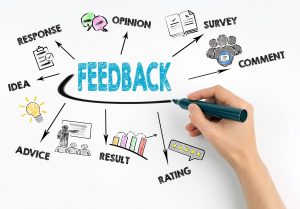Empathy is the art of seeing the world as someone else sees it. When you have empathy, it means you can understand what a person is feeling in a given moment, and understand why other people’s actions made sense to them. Without empathy and focus, you’ll never be able to communicate effectively and relate well to others. People who lack empathy are sure to face interpersonal difficulties that lead to inferior performance, negative outcomes, and poor relationships with coworkers and customers.
 Empathy is the ability to “walk in someone else’s shoes.” it is the ability to read other people by sharing and identifying their emotional states.
Empathy is the ability to “walk in someone else’s shoes.” it is the ability to read other people by sharing and identifying their emotional states.
Empathy is a foundational skill for all social competencies in the workplace:
- Understanding others: Sensing others’ feelings and perspectives; taking an active interest in their concerns
- Service orientation: Anticipating, recognizing and meeting customers’ needs
- Developing others: Sensing others’ developmental needs and bolstering their abilities
- Leveraging diversity: Cultivating opportunities among diverse people
- Political awareness: Reading the political and social currents in an organization
Successful leaders score high marks in these areas, which leads to goal completion – not to mention opportunities for promotion. When combined with focus, perseverance and concentration, empathy breeds achievement.
Here are 10 steps to improve empathy:
The following steps can help you improve your empathy skills. As with other emotional competencies, empathy requires practice.
- Take note of situations in which you demonstrated empathy (versus the times you failed to do so).
- Recall times when people’s underlying concerns were not explicitly expressed and/or addressed.
- Identify emotions the other person may be experiencing. Explore the possibilities, without assuming your suspicions are true.
- Develop a list of questions for your next encounter with this person.
- Practice listening without interrupting. Wait until others fully express their points of view before offering your own.
- Avoid being defensive. Your goal is to create an open dialogue, during which possibilities can be freely explored.
- Allow enough time for people to express their opinions and ideas without judgment.
- Practice active listening. Always confirm the meaning of what was said. Paraphrasing people’s words helps clear up misconceptions and deepens understanding.
- Always focus on desired outcomes. Be sure to balance empathy and focus to achieve optimum effectiveness.
- Continue to practice this balance of focus, goal-orientation and empathetic listening.

